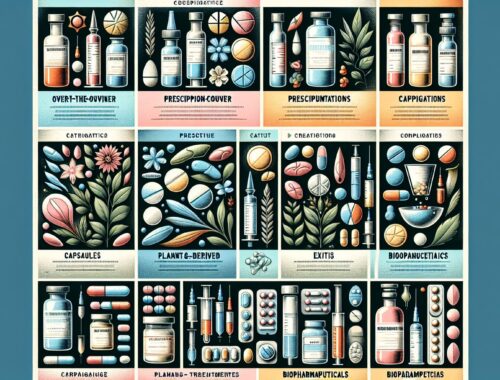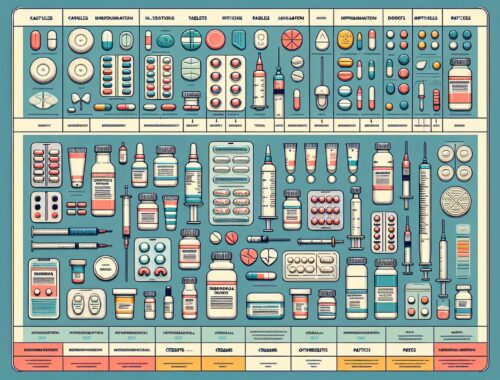
Exploring the Different Types of Medicines
Medicines play a crucial role in maintaining our health and treating various illnesses. There are a wide range of medications available, each designed to target specific health conditions or symptoms. In this article, we will explore the different types of medicines that are commonly used in healthcare.
Over-the-Counter Medications
Over-the-counter medications, also known as OTC drugs, do not require a prescription from a healthcare provider. These medicines are typically used to treat minor health issues such as headaches, allergies, and cold symptoms. OTC medications are widely available at pharmacies, grocery stores, and convenience stores. Examples of OTC drugs include pain relievers like ibuprofen and acetaminophen, as well as antihistamines for allergies.
Prescription Medications
Prescription medications are drugs that can only be obtained with a prescription from a healthcare provider. These medicines are often used to treat more serious health conditions such as high blood pressure, diabetes, and bacterial infections. Prescription medications are typically stronger and more potent than OTC drugs. Patients must follow the dosage and usage instructions provided by their healthcare provider when taking prescription medications.
Herbal Remedies
Herbal remedies are medications made from plants and plant extracts. These natural remedies have been used for centuries to treat various health conditions. Herbal remedies are often used as alternative or complementary treatments to conventional medications. Examples of herbal remedies include echinacea for boosting the immune system and ginger for relieving nausea.
Topical Medications
Topical medications are applied directly to the skin to treat skin conditions such as rashes, infections, and inflammation. These medicines are available in the form of creams, ointments, gels, and patches. Topical medications work by absorbing through the skin and targeting the affected area. Examples of topical medications include hydrocortisone cream for itching and antibiotic ointments for cuts and wounds.
Injectable Medications
Injectable medications are administered through a needle and syringe either subcutaneously, intramuscularly, or intravenously. These medicines are often used when oral medications are not effective or when a rapid response is needed. Injectable medications are commonly used to treat conditions such as allergies, diabetes, and autoimmune diseases. Examples of injectable medications include insulin for diabetes and epinephrine for severe allergic reactions.
In conclusion, there are various types of medicines available to treat a wide range of health conditions. Whether you are seeking relief from minor symptoms or managing a chronic illness, there is a medication that is suited to your needs. It is important to consult with a healthcare provider before starting any new medication to ensure its safety and effectiveness. By understanding the different types of medicines available, you can make informed decisions about your healthcare and well-being.
You May Also Like

The Different Types of Medicines
January 2, 2024
The Different Types of Medicines
April 3, 2024

